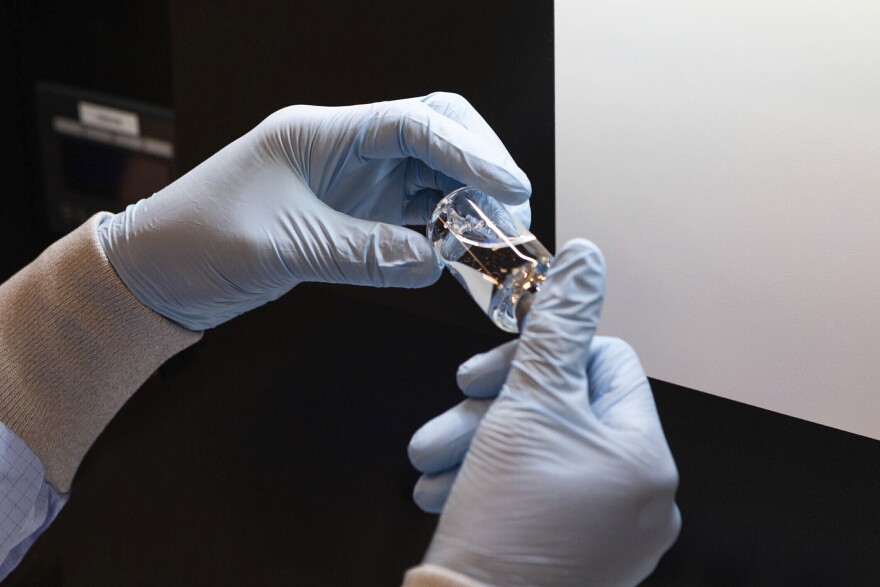White House health adviser Dr. Anthony Fauci said this week that early results from an experimental COVID-19 treatment were "quite good news."
Doctors in Washington state already had been treating dozens of patients with the antiviral drug, remdesivir, for more than a month — and seeing some of the same promising signs, one researcher said.
"This is something that gave us hope," said Dr. Vinay Malhotra, a Tacoma-based doctor with MultiCare leading an early investigation of remdesivir's usefulness in treating COVID-19.
Malhotra said that, while the drug is "not the miracle cure," it seems to help some patients recover from COVID-19 more quickly.
"Within 24 hours, you would see less cough, less fever, less muscle aches," he said. "And pretty much by fifth or sixth day, we would start noticing people willing to go home or would be ready for discharge."
Of the 53 patients with moderate or severe cases of COVID-19 treated with remdesivir in the trial, 28 have recovered and three have died, Malhotra said. The rest are still receiving treatment.
"This is not a randomized, controlled, double blind kind of a study," he cautioned. "This is more observational." Patients, he said, were treated at multiple MultiCare sites in both eastern and western parts of the state.
Malhotra’s observations are in line with early results of the first clinical trial of remdesivir for COVID-19 in the United States.
In a trial of more than 1,000 patients, those treated with the drug recovered 31 percent faster on average and had a lower rate of death than those who received a placebo, according to the National Institutes of Health.
However, a smaller, earlier study in China found the drug yielded only a minor improvement in the speed of recovery that researchers deemed to not be statistically significant.
Malhotra said it seems important that patients receive the drug before the disease progresses too far. Further along in a case of COVID-19, the body's own immune system is doing much of the damage and the antiviral treatment seems to have limited benefits, he said.
"You go into this hyper-immune status where it starts to cause injury in the lung tissue, it causes secondary issues with clotting, with thrombosis, multiple organ failure," he said. "And that's what leads to death."
Malhotra said he grew interested in studying remdesivir after it showed promise at the earliest stage of the outbreak in Washington state.
The first person in the United States to be diagnosed with COVID-19, a 35-year-old man in Snohomish County, received the drug in a hospital and his condition improved the next day, according to an account in the New England Journal of Medicine.
But when MultiCare began its remdesivir trial in mid-March, researchers ran into an early hurdle, Malhotra said. Patients came into hospitals asking for specific drugs they had heard about in the media, including hydroxychloroquine, the anti-malaria medication promoted by President Donald Trump.
"Our first challenge was to overcome some of the information or misinformation that was out there about treatment options," Malhotra said. "Most patients would ask for one drug or the other, which is not in the study or the trial. And we would have to explain to them that nothing has been approved or is considered a standard of care."
Malhotra said he could see remdesivir emerging as one of several tools doctors can use to speed recovery from COVID-19.
He said watching a treatment appear to work for some people was more than a scientific exercise. It was a source of personal relief after weeks of troubling news about COVID-19.
"Everything about it from Italy, from Spain, from the East Coast, it's all negative," Malhotra said. "We were trying to look for anything that would help our patients recover. And when we started seeing this at our site, it provided us with hope."







